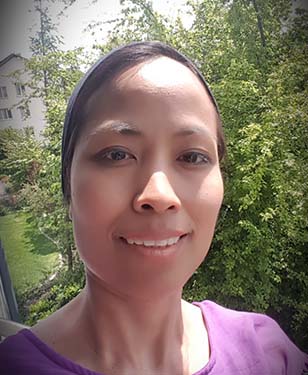Imagine spending years feeling isolated and alone as you navigate a long winding road to diagnosis, searching for answers. You finally hear the words “multiple sclerosis” (MS) and although shocking, you feel some sense of relief to have an answer. But as you search for stories of others who have walked this same path, the faces staring back at you are nothing like your own. Once again, you feel isolated and alone, this time with the shame of feeling different.
Future lawyer and chronic illness advocate, Lauren Work is on a mission to change the narrative of MS and improve health outcomes for underrepresented women. Since her diagnosis, she has become a leader within the MS community, dedicating herself to changing perceptions of the disease and empowering other women of color to navigate life with MS.
Lauren’s story
At just 18 years old, Lauren began having blurry vision to such an extent that an eye doctor, quickly realizing the issue was not with her eyes but rather with her brain, urged her to go to the emergency room. That led to a battery of tests which revealed optic neuritis – inflammation of the optic nerve1. Despite the condition being a common presenting symptom in people with MS2, Lauren did not receive her diagnosis of relapsing-remitting multiple sclerosis (RRMS) for another three years. Patients with RRMS have flare-ups of the disease, or relapses, in between periods of recovery, or remissions3.






